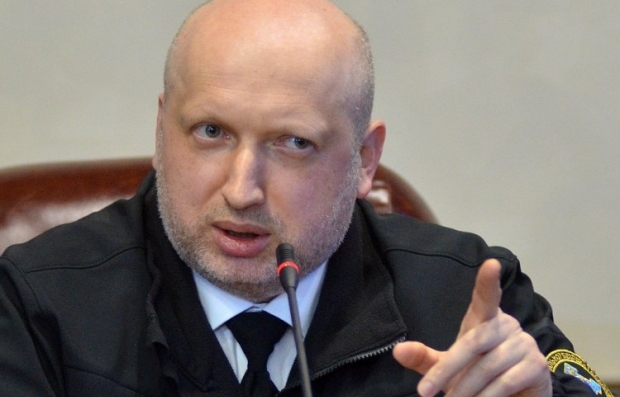
As the war in Ukraine is entering a new stage, Ukraine is still “holding the line between Putin and Europe,” according to Turchynov's article "Ukraine’s security challenges and the crisis of global order" published by the American Interest.
He adds that "in doing so Ukraine has demonstrated that it can be an actor on the world stage."
However, Turchynov stresses the need to "clearly comprehend the the scope of the events and understand the place and role of our struggle in the global context" as the war in eastern Ukraine “is a symptom of the crisis of the global system of international security and increasing destabilization of world order."
Various regional conflicts, if intensified, can “bring the world to the brink of a worldwide armed conflict that could translate into a full-scale war involving the use of nuclear weapons as well as other weapons of mass destruction, or a welter of smaller conflicts of varying intensity,” resulting in “global disorder,” says Turchynov.
The NSDC Secretary believes, Ukraine may be eventually dragged into a continental war, “the likelihood of which increases because of the militaristic psychosis enveloping the Russian Federation <…> due to the Kremlin’s complete incapacity to solve urgent domestic political, economic and social problems without the employment of imperial-chauvinistic rhetoric and the creation of phantom external enemies.”
“The more complicated the situation inside Russia, the more aggressive its foreign policy will become. It is this tendency that explains Kremlin’s persistent attempts to get involved in the complex processes in the Middle East,” says Turchynov. “In his desire to prop up his fellow dictator Syrian president Bashar al Assad, Putin increases Russian military presence in the eastern Mediterranean under the hypocritical cover of struggle against the Islamic State.”
“Taking into consideration Russia’s chosen paradigm of aggression, combined with its political and economic situation, the Ukrainian state must prepare for the worst-case scenario,” Turchynov says, adding that Europe’s “harsh sanctions must be viewed not as a temporary campaign but as a coherent policy that facilitates conditions for the self-destruction of the remnants of the aggressive empire.”
Meanwhile, Turchynov calls for NATO erect a “formidable barrier along its entire eastern flank” and reinforce Ukraine’s military and technological capacity,” thus contributing to the “renewal of peace and security on the entire European continent.”
Oleksandr Turchynov reassures that “Ukraine acknowledges with gratitude the political and economic support extended by our strategic partners in this difficult time,” however he expresses hope that “this support will continue and translate into further dismantlement of barriers to military and technological cooperation and the recognition of our right to pursue European integration, a path chosen by the Ukrainian people.”
The NSDC Secretary acknowledges that the country still “has many problems that it must tackle on its own,” recognizing that no one but the Ukrainian State “can overcome the corruption that plagues us and the temptation to substitute painful systemic reforms with flashy PR presentations.”
Turchynov believes that Ukraine’s most important task is “the acceleration of the reform of security and defense sectors—in particular, military reform.”
He also mentions that a number of international organizations in which Ukraine participates are also “in a state of a deep crisis” and need to be reformed, thus creating a “new security order.”
“Ukraine must become one of the key players in the region, the one establishing effective formats of operational interaction with the states that are potential objects of Russian aggression,” says Turchynov.
However, he stresses: “Only a state built upon the trust of its citizens, based on justice and rule of law, and working for the interests of its people and their development can create a new and effective security system, reinstate and defend its borders and become an influential and consequential subject of world politics.

